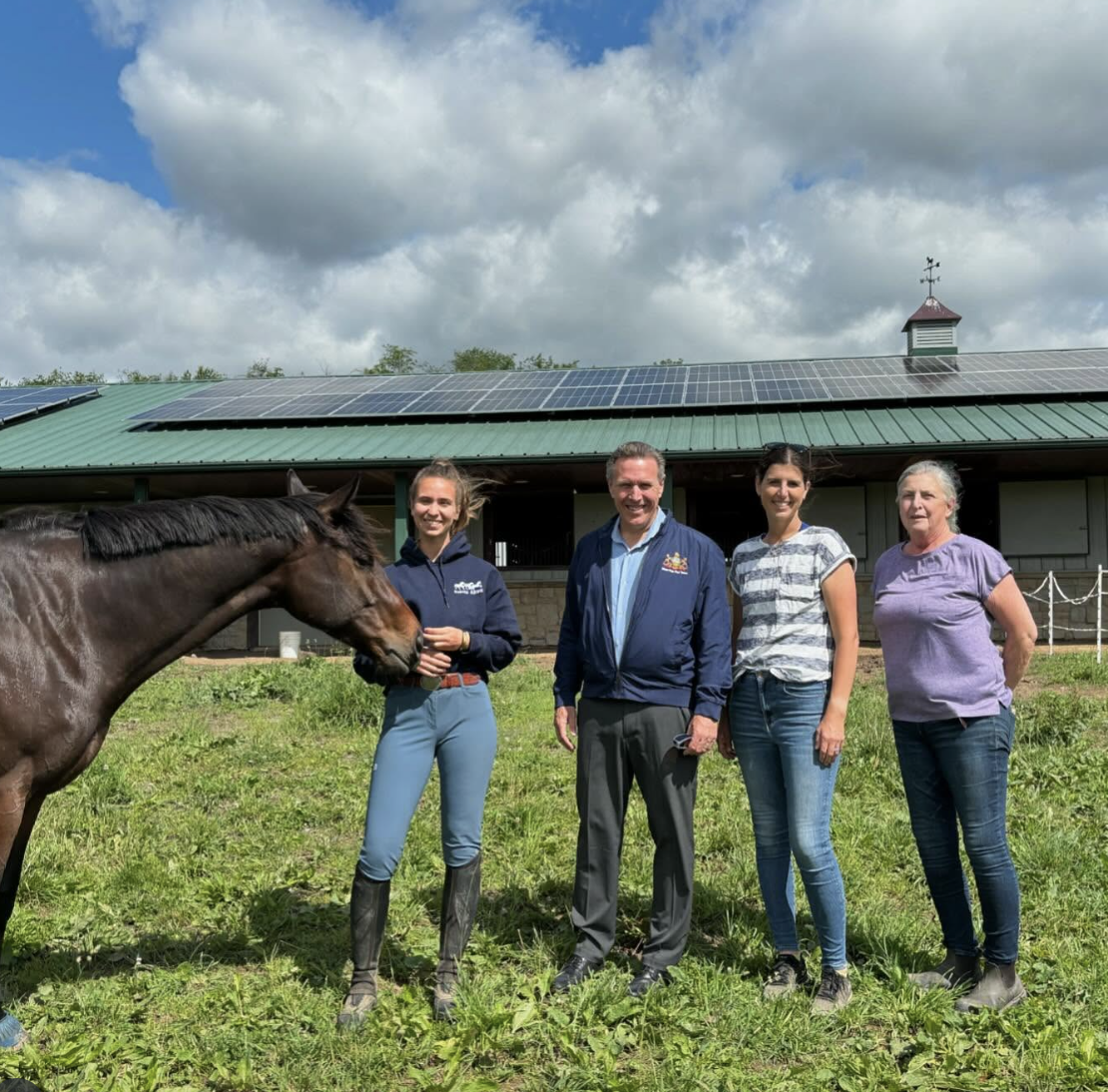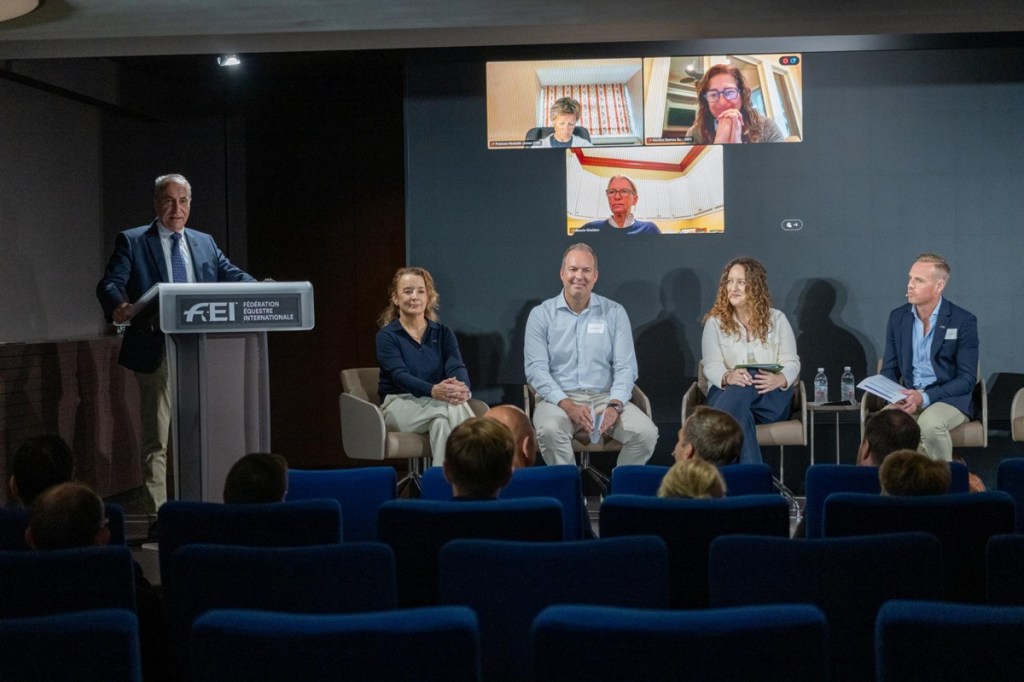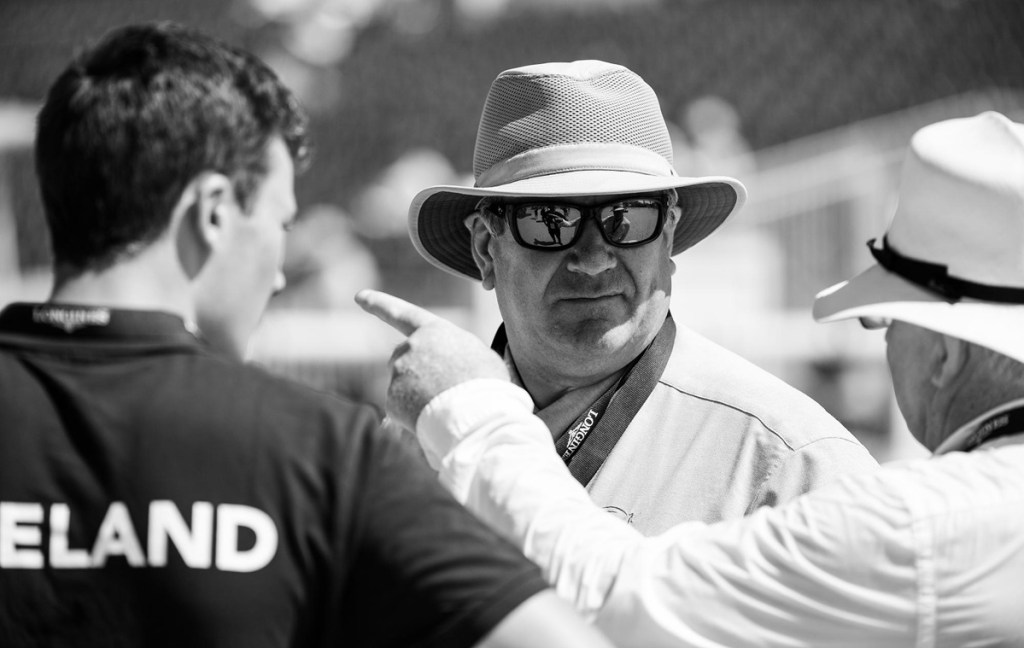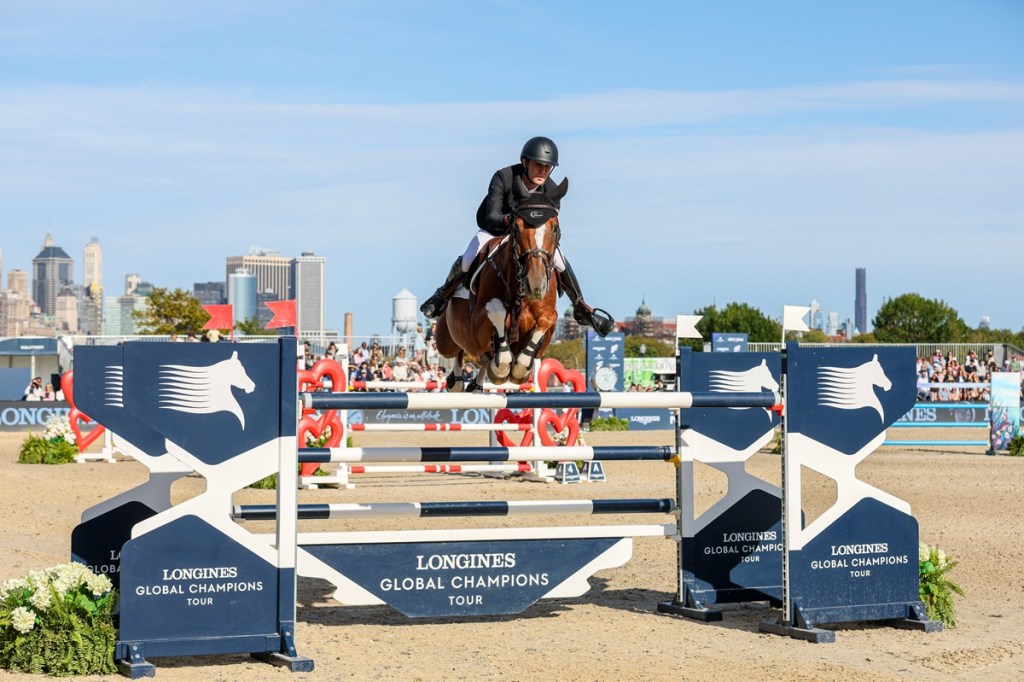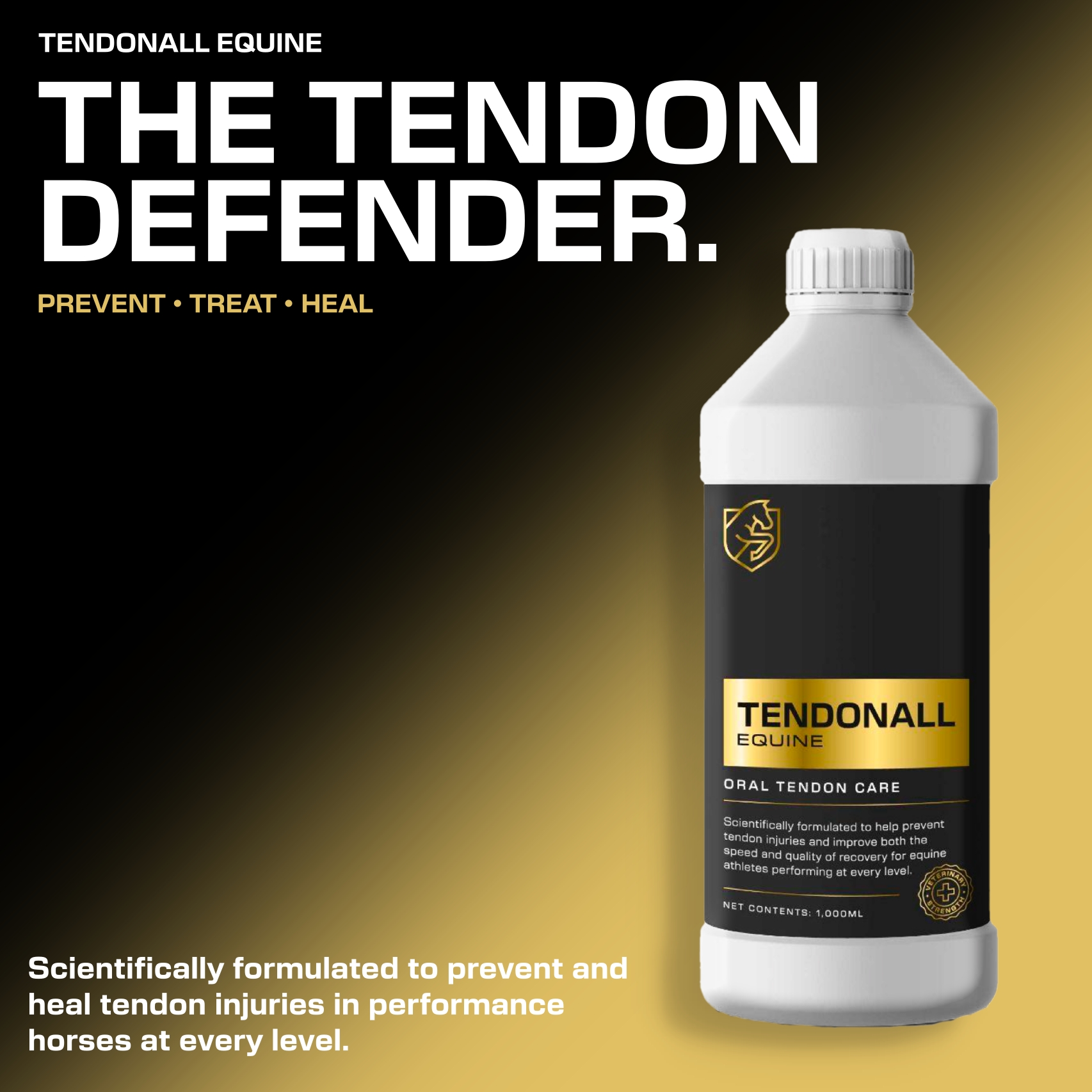“The qualities required to be good with horses are the same qualities required to be good at life” –Mark Rashid
Growing up with horses, I’ve learned so much — responsibility, empathy, and a strong work ethic, just to name a few. Horses have taught me commitment, brought me joy and peace, and helped me build resilience through both highs and heartbreaks. I’ve seen these same traits develop in others who work with horses, from students to coworkers.
These experiences go beyond the barn. The traits that make someone a good horseman often shape them into a better person overall.
Before fully diving into the equine world, I studied Community Development at Penn State. That background sparked my passion for community and helped me think about how horses not only shape individuals, but also strengthen communities.
One class in particular, focused on power, conflict, and the meaning of the “good life,” got me thinking: How do horses help us live that good life? How do they shape our character and the way we relate to others?
Naturally, I followed the path I love most—a life with horses—to explore those questions.
There is no straightforward answer to the question “what makes a good life?” However, three key themes are clear in studying the role of the individual within a society striving for the elusive “good life”. In order to be a good citizen, one must develop their own experience, recognize the value in diverse experiences, and keep purpose central to every deliberation.
These three themes are seen in a life as a good horseman as well: throughout a trainer’s horsemanship journey, one must strive to gain experience. Without gaining personal experience and establishing your own values, beliefs, and understanding of the material, your ability to teach or train equine partners will be limited, as “You have to be connected to yourself… before you can connect with someone else” (Mark Rashid). Beginning training without establishing your personal experience may be detrimental, as “Brutality begins where knowledge ends. Ignorance and compulsion appear simultaneously” (Charles de Kunffy). In order to ensure positive and productive training with a horse, a highly experienced and well-educated horseman is key to such success, as experience ensures clarity, kindness, and consistency of the cues sent to the horse. However, while experience is key to successful training, one must recognize that such experience develops over a lifetime: “I need to know my job, what I’m trying to teach, and you don’t learn that overnight. It takes a lifetime to learn how to live a lifetime” (Ray Hunt). While embracing your experience is appropriate, the patient, long-term approach to the lifelong development of knowledge is inescapable if you want to do good work.
In a similar vein to the need for experienced, yet lifelong learners is the need for recognition of diverse experiences. As a horseman continues on his lifelong journey, he is bound to come into contact with a new approach to training as “with anything there is to do with horses, there are about a hundred different ways to get it done… There is more than one right way. There are some things that you won‘t understand or agree with. That doesn‘t make them bad. There are some things you may think are the best way right now. Later, you‘ll come to see that maybe they weren‘t nearly as good as you thought. Keep learning, keep trying. It will come” (Ronnie Willis). Maintaining an open mind and respect for variations in approaches can leave the door open to innovative solutions with unexpected results. Pulling from diverse experiences and training methods has the power to support your work with a particularly challenging horse, or a situation you have yet to run into. With countless complex challenges and individual equine personalities, assuming one trainer will have the solution to every problem is naive. We are interdependent in our learning processes, shaped by our social interactions so it is important to recognize the value in collaborating with different horsemen to grow from our learned experiences with diverse equine partners.
Third, throughout the entirety of our learning process in training horses, it is critical to keep the purpose, or the “why”, at the center of all that we do. “You ask me why I do things. You don’t have to do none of this. But there is a reason why I do what I do, and the horse is why… How is the horse going to learn if you don’t know why you do what you do?” (Ray Hunt). Identifying and emphasizing the purpose of your work can help motivate both the horse and the trainer to complete their task – it gives meaning to an action that may otherwise grow to be repetitive and uninteresting. Riding without clear intent can lead to problems in the ring, such as being “ring sour” or “spooky”, or lead to a horse and rider quick to fight as a result of a bored, confused, or tired horse. In order to add true value and quality to work that both horse and rider enjoy, establishing and centering the purpose, or “why”, in your work is critical.
In what ways can lessons from training horses apply to being a good citizen in human society? Allowing lessons learned from human-equine interactions to influence solutions to our societal challenges will provide unique perspectives to “[break] new ground by using diversity” and form new ideas for society from existing equestrian ideas. Just as in training horses, bringing personal experience with an open mind fueled by purpose is the key to positive and productive human interactions.
Although it is critical for individuals to bring their lived experience to the table, there is also the need for those individuals to be open-minded and respectful of other lived experiences in order to establish a collective experience. “The spirit of liberty is the spirit that is not too sure it is right” and is therefore open to discussion and connection across differences. Through efforts such as everyday deliberations, individuals have the opportunity to listen to and learn about each other, taking in the experiences of others without agreeing with what they are advocating . “All new ideas are combinations of existing ideas”, and creating an enabling environment which encourages, embraces, and celebrates diversity can lead to open conversations which then allow for the establishment of a common humanity critical for positive and productive development of good citizens, institutions, and societies.
Finally, a good citizen and participant in human society must keep the purpose central to deliberations and experiences throughout their day. In the debate over what individuals are owed in society, Aristotle urges us to first identify the telos, or the purpose, end, or “why” behind the policy, institution, or communication. “To argue about the purpose of a social institution is to argue about the virtues it honors and rewards”. The purpose lies at the foundation of how we organize as individuals within our society – what we value, what we need or want, and how we behave. Without clarity and honesty in defining our purpose, addressing the complex problems facing our society will be impossible, as we will never achieve defining the “good life”, or effectiveness in how we interact with each other in dealing with differences. If we fail to recognize the root of our discussions, and of our social organization, how can we expect to value our experiences or collaborations?
Interactions between humans and horses provide valuable insight into ways in which humans can develop to better participate in human societies. As outlined, key traits required for success in working with horses can be found to be key to the creation of good citizens. The ability to bring your own experiences to the table as a horseman and citizen not only ensures confidence in the guidance you provide for your equine partner, ensuring clarity and consistency in the work, but it also is a key component to showing up as a productive and engaged citizen in the process of deliberation. While experience is critical, so is an open mind and recognition of learning as a lifelong process. Respecting others’ experiences will encourage creativity in training a new horse or in facing a new challenge in training, but it will also assist in establishing a common humanity with other citizens, creating a space for collective experiences to develop and lead to collective responsibility and innovation. However, throughout this entire process, the purpose, or “why”, behind the work must remain central. Purpose adds meaning to work and deliberation, and staying honest in the purpose encourages productive conversation and discourages feelings of frustration, anger, or arguments in training or between people.

